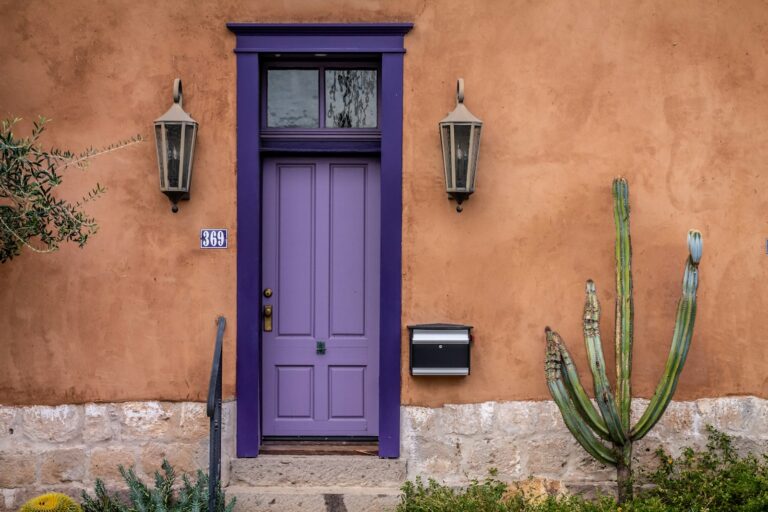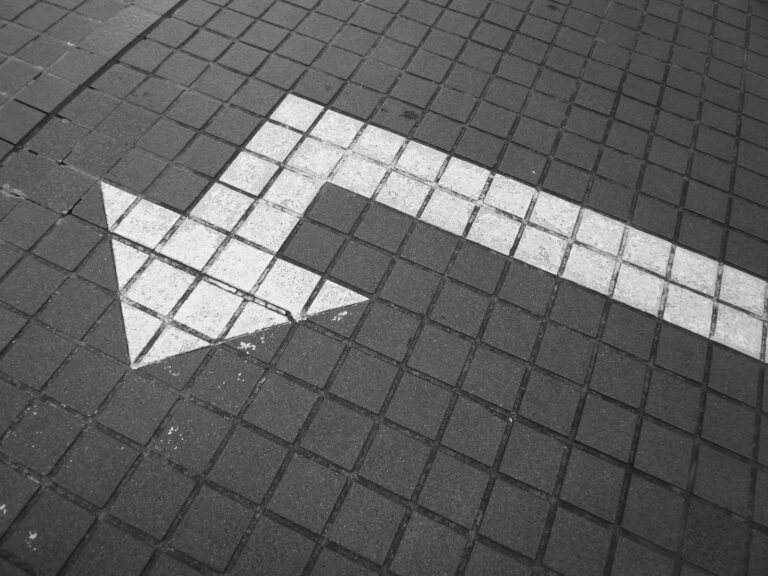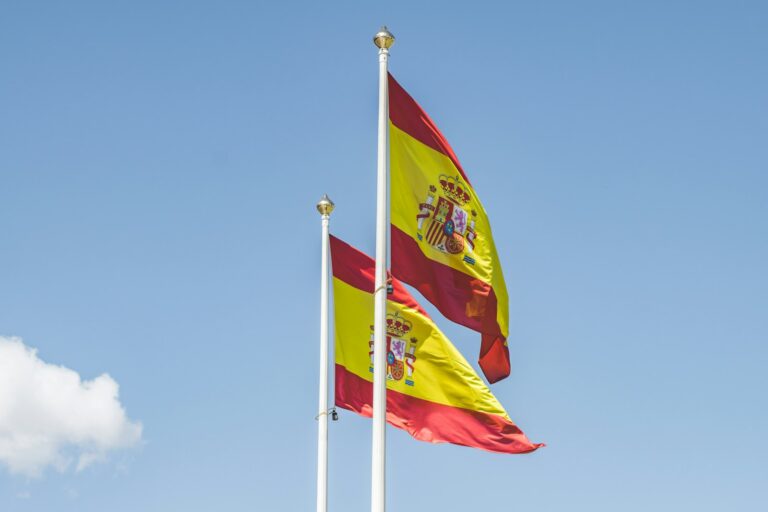What does “Ja ja ja” mean in Spanish?
Picture this: you’re scrolling through social media and stumble upon a funny meme. You jump into the comments section, and suddenly, you see a flood of “ja ja ja” responses. If you’re not familiar with Spanish, you might be scratching your head, wondering what on earth that means. It’s like stepping into a vibrant fiesta where everyone’s in on the joke except you.
“Ja ja ja” is the Spanish equivalent of “ha ha ha” in English. It’s how Spanish speakers express laughter online. Just imagine the sound of a hearty laugh—it’s universal, right? But the way it’s written can vary across languages. So, when you see “ja ja ja,” you’re witnessing a slice of cultural expression that’s as authentic as a homemade tamale.
Stick around, and you’ll uncover the intriguing area of Spanish digital expressions. By the end, you’ll not only understand what “ja ja ja” means, but you’ll also feel like a part of the conversation, ready to jump into any Spanish-speaking thread with confidence.
Understanding “Ja Ja Ja” in Spanish

Ever seen “ja ja ja” in Spanish messages and wondered what it means? It’s the Spanish way to laugh online, just like “hahaha” in English. Let’s jump into how and why “ja ja ja” conveys laughter in Spanish.
Definition of “Ja Ja Ja”
“Ja ja ja” is an interjection used in Spanish to express laughter. It mirrors the English “hahaha.” You’ll spot it in chats, text messages, and social media comments whenever someone finds something funny. It’s a universal expression of joy and amusement across Spanish-speaking cultures.
Origin and Etymology
Why not use “ha ha ha” in Spanish? It all comes down to pronunciation. In Spanish, the letter “h” is silent. So, for the same laughter sound, they use “j” instead. This subtle shift helps produce that familiar laugh-like sound without breaking Spanish phonetics rules.
Pronunciation Guide
To nail “ja ja ja,” use a strong “j” sound, like in “jar” or “jog.” Pronounce it “hah hah hah,” not like “yaya” or “yayaya.” Imagine you’re saying “jar” repeatedly but ending the sound quickly.
Regional Variations
Interestingly, “ja ja ja” is consistent in pronunciation and usage across Spanish-speaking regions. Whether you’re chatting with someone from Spain, Mexico, or Argentina, “ja ja ja” means the same thing — a shared laugh.
Common Mispronunciations
A common mistake is pronouncing “ja ja ja” as “yaya” or “yayaya,” which changes the intended sound entirely. Stick to the firm “j” sound to keep your laughter authentic. Think of it like adding a sprinkle of local flavor when you laugh in Spanish.
The Cultural Context of “Ja Ja Ja”
Ever see “ja ja ja“ in a message from a Spanish-speaking friend and wonder what it means? It’s the Spanish version of “haha,” used to express laughter online or in texts. Let’s dive deeper into its usage and nuances.
Usage in Spanish-Speaking Countries
In Spanish-speaking countries, “ja ja ja“ isn’t just a simple laugh. It’s a cultural touchstone. The number of “ja“s counts, shaping the intensiveness of the laughter. For instance:
- “ja ja ja”: a polite chuckle
- “ja ja ja ja”: a hearty laugh
- “JA JA JA”: roaring laughter
Think of it like you’re at a party; your polite laugh might be just “ja ja ja,“ but when something’s hilarious, you exaggerate with “JA JA JA.” These subtle variations give your laughter a personal touch.
Comparison to English Laughter Expressions
You often find “haha“ or “lol“ in English messages. While similar, “ja ja ja“ in Spanish embraces its own charm. “Haha“ appears more frequent in English, showing similarity yet distinction in usage. Funny meme with an English-speaking friend? You type “lol.“ With a Spanish-speaking friend? Go for “ja ja ja.”
Digital Communication and “Ja Ja Ja”
In the digital age, expressing emotions through text gets tricky. Here, “ja ja ja“ shines. Whether you’re chatting on WhatsApp or laughing at a Facebook post, using bold “ja ja ja“ connects you authentically.
Here’s a quick table summarizing these points:
Spanish Laughter | English Equivalent | Intensity |
|---|---|---|
“ja ja ja” | “haha” | Polite chuckle |
“jajaja” | “hahaha” | Hearty laugh |
“JA JA JA” | “HAHAHA” | Roaring laughter |
When and How to Use “Ja Ja Ja”
Ever found yourself texting a Spanish-speaking friend and suddenly see a burst of “Ja Ja Ja“ in the chat? It means they’ve had a belly laugh! Let’s jump into when and how to sprinkle “Ja Ja Ja“ into your online convos.
Appropriate Situations for “Ja Ja Ja”
Think of “Ja Ja Ja” as your go-to laughter response in Spanish. Use it when something’s genuinely funny. Did your friend just share a hilarious meme? “Ja Ja Ja“ is perfect. In informal settings with friends, family, or even new acquaintances, it signals playfulness and genuine amusement. It’s much like using “haha” or “LOL” in English.
Intensity Levels of Laughter in Spanish
Wondering when to stop at one “ja“ or stretch it to three? Here’s a quick guide:
Laughter Type | Intensity Level | Example Usage |
|---|---|---|
“Ja” | Slight chuckle | Light jokes, mildly amusing comments |
“Ja Ja” | Pronounced laugh | Laugh-inducing stories, witty replies |
“Ja Ja Ja” | Hearty laugh | Extremely funny jokes, hilarious situations |
So, if someone sends you a mildly funny message, one “ja“ fits. Something more amusing? Go for two. And for those laugh-until-you-cry moments, unleash the three “ja“s.
Alternatives to “Ja Ja Ja”
Just like English has “haha” and “lol,” Spanish offers other playful laughing sounds:
“Jeje” and Its Meaning
“Jeje“ resembles a sneaky chuckle or a smirk. It’s great for slightly mischievous jokes or teasing. Imagine your friend pulling a harmless prank, and you respond with “jeje“. It’s lighter than “ja ja ja“ but packs a playful punch.
“Jiji” and When to Use It
“Jiji“ mimics a giggle. Picture yourself amused by something adorably funny or cute, like a cat video. Use “jiji“ to convey this lighter, more playful laughter. It’s less intense yet conveys your joy.
Common Misconceptions About “Ja Ja Ja”

Understanding “ja ja ja” in Spanish involves more than just translating it to “ha ha ha” in English. Let’s clear up some common misunderstandings.
Is “Ja Ja Ja” Sarcastic?
It’s a common misconception that “ja ja ja” might carry a sarcastic tone, similar to how English speakers sometimes use “ha ha.” But, “ja ja ja” in Spanish primarily conveys genuine laughter and amusement. Sarcasm in online Spanish laughter often shows up differently. For sarcastic remarks, you might see “jeje” more often. So, while you might wonder if your Spanish-speaking friend is making fun of something with a “ja ja ja”, they probably just found it genuinely funny.
“Ja Ja Ja” vs. “Ha Ha Ha” in Spanish
So, why use “ja ja ja” instead of just keeping it universal with “ha ha ha”? The answer lies in pronunciation. The Spanish letter “j” sounds like the English “h,” so “ja ja ja” and “ha ha ha” actually sound the same. By sticking with “ja ja ja”, Spanish speakers are maintaining correct phonetic practices while still engaging in digital laughter. It’s similar to why we might use emojis; it’s about sounding natural and authentic in your own linguistic context.
To give a clearer picture, here’s a handy table comparing the expressions:
English Laughter | Spanish Equivalent | Pronunciation (Spain/Latin America) |
|---|---|---|
ha ha ha | ja ja ja | ha ha ha |
he he he | je je je | he he he |
hi hi hi | ji ji ji | he he he |
Learning to Use “Ja Ja Ja” Effectively
Want to sound like a native when you laugh online in Spanish? Learning to use “ja ja ja” effectively can help you connect and add authenticity to your conversations. Here are some valuable tips and insights for non-native Spanish speakers.
Tips for Non-native Spanish Speakers
- Context Matters: Use “ja ja ja” to respond to jokes or humorous situations. Ever been in a room where everyone laughed except you? Same goes online. You don’t want to miss out on the shared laugh.
- Tone and Volume: Vary the tone and volume of your “ja ja ja” to convey different levels of amusement. Picture it: a single “ja” sounds more like a giggle, while a long “ja ja ja ja ja” shows you’re in stitches.
- Cultural Nuances: Remember, “ja ja ja” might be used differently in Spain compared to Mexico. It’s all about fitting into the digital scene smoothly – like knowing if it’s okay to hug at first meet in real life.
Integrating “Ja Ja Ja” into Conversations
Start small. When a friend cracks a joke, simply type “ja ja ja.” The more you use it, the more natural it’ll feel. Let’s say your friend makes a sarcastic comment about Monday mornings – a well-placed “ja ja ja” can show you’re in on the joke. Key is to be timely with your response, which can make your conversations livelier and more engaging.
Avoiding Overuse and Awkwardness
While “ja ja ja” is fun, overuse can seem insincere. Imagine laughing at every single thing someone says; it gets awkward. Use it contextually where genuine laughter is appropriate. Over time, you’ll get a feel of when it’s authentic and when it isn’t. Balance it out with other expressions or emojis to keep things fresh.
Tips | Examples |
|---|---|
Context Matters | Use “ja ja ja” after a joke |
Tone and Volume | “ja” (giggle), “ja ja ja ja” (in stitches) |
Cultural Nuances | Different usage in Spain vs Mexico |
Integrate into Conversations | Respond to sarcastic comments |
Avoid Overuse and Awkwardness | Use in genuine laughter moments |
Master “ja ja ja” and watch your digital Spanish interactions come to life. Ready to laugh in Spanish?
Common Mistakes to Avoid

When using “ja ja ja” online to express laughter in Spanish, avoiding common mistakes ensures you’re communicating effectively and authentically.
- Incorrect Spelling: Always use “ja ja ja” instead of “ha ha ha”. The latter is an English expression and can come off as unfamiliar or inauthentic to Spanish speakers.
- Overuse of “Ja”: Adding too many “ja’s” might seem unnatural. Stick to standard formats like “jaja” for polite laughter and “jajaja” for more genuine fun.
- Inappropriate Context: Don’t use “jaja” in formal or serious conversations. Reserve it for casual, friendly exchanges. For instance, avoid using “jaja” when replying to a professional email.
- Misunderstanding Tone: Misinterpretation of tone often leads to confusion. “Ja” alone sometimes signals irony or sarcasm. Context matters—ensure it’s clear whether you’re laughing genuinely or ironically.
- Ignoring Regional Variations: Be aware of regional differences. While “jaja” is widely understood, other expressions like “CDLR” (Venezuela’s “I’m dying of laughter“) might not be recognized everywhere.
Country | Expression | Meaning |
|---|---|---|
Spain | jaja | Standard laughter |
Mexico | jeje | Quiet laughter |
Argentina | jajajaja | Intense, exaggerated laughter |
Venezuela | CDLR | I’m dying of laughter |
Understanding these nuances can help you fit in better with Spanish-speaking communities online. By sidestepping these pitfalls, you’ll ensure your digital interactions remain positive and clear.
Conclusion: Mastering the Art of “Ja Ja Ja” in Spanish
Embracing “ja ja ja” in your digital conversations can make your interactions with Spanish speakers more authentic and engaging. It’s a small but significant way to show respect for the culture and connect on a deeper level. Remember to pay attention to regional differences and context to avoid common pitfalls. With a bit of practice, you’ll be laughing along with your Spanish-speaking friends in no time. So go ahead and sprinkle some “ja ja ja” into your chats and enjoy the shared laughter!
Frequently Asked Questions
How do you say LOL in Spanish slang?
In the Spanish digital world, “jajaja” is the most popular way to express laughter. The “j” in Spanish is pronounced like the English “h”, making it the equivalent of “hahaha” in English, but with its unique cultural twists.
What does jaa mean in Spanish?
“Jaa” is an expression of laughter often used to mimic the sound of laughing. It’s similar to “ha! ha!” in English and can sometimes be used sarcastically.
What is the Spanish slang for laughing?
In Spanish, “jajaja” represents laughing. For irony, “jejeje” is used, and for a more mischievous tone, “jijiji” is common. Each variation adds a different nuance to the expression of laughter.
How do you pronounce “Ja ja ja”?
In Spanish, the “J” is pronounced as an “H”, so “Ja ja ja” is pronounced as “Ha ha ha”.
Some other laughter-related terms in Spanish include “Carcajada” (guffaw), “Risita” (snicker), and “Reír a carcajadas” (to laugh out loud).






